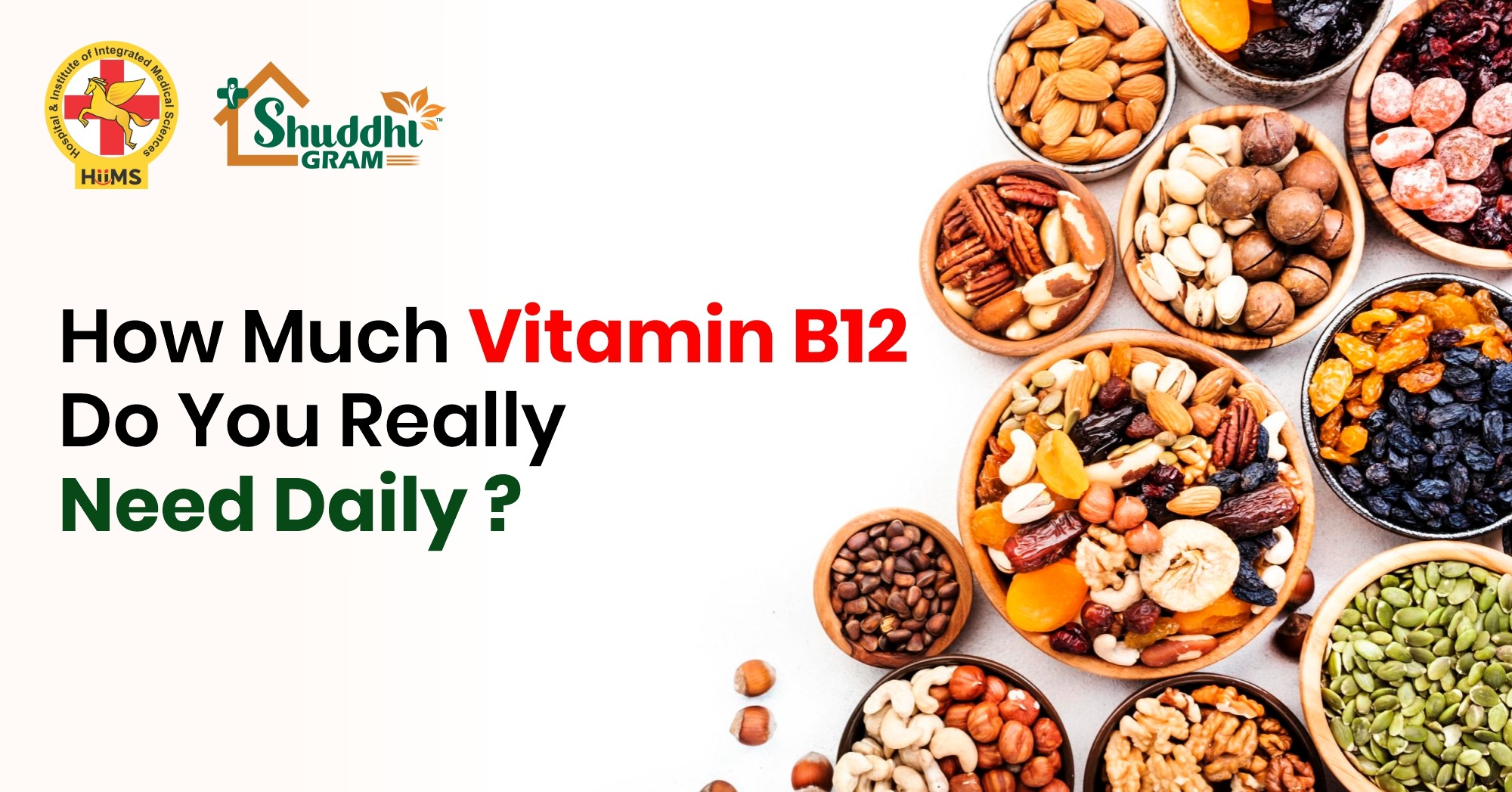
As the title of the blog suggests, let’s talk about Vitamin B12 for a moment. You’ve likely come across it in different contexts; sometimes people talk about it when they feel drained of energy, and other times it comes up when memory or nerve health is being discussed. But here’s the thing: this small but mighty vitamin (also called Cobalamin) quietly runs a lot of your body’s key processes. It helps your red blood cells form, keeps DNA production on track, and supports your nervous system so you can think clearly and move without issues.
And yet, many people don’t really think about how much of it they’re actually getting every day. That’s where the trouble often begins. When your B12 drops too low, the signs sneak in slowly, like tiredness that won’t go away, tingling in the hands, and brain fog that feels heavier than usual. The signs of low vitamin B12 don’t always shout at the start; they show up quietly. But when you know what to watch for and how much your body really needs each day, you can spot the gap early, before it grows into something bigger.
In this blog, you’ll walk through the daily Vitamin B12 needs for every age group, the things that affect how well your body absorbs it, and the simple ways to bring it into your meals.
How much B12 do we actually need?
It depends on your age and stage of life. The numbers aren’t complicated, but they matter:
- Babies up to 6 months: 0.4 mcg
- Infants (7–12 months): 0.5 mcg
- Young kids (1–3 years): 0.9 mcg
- Children (4–8 years): 1.2 mcg
- Older kids (9–13 years): 1.8 mcg
- Teens (14–18 years): 2.4 mcg
- Adults: 2.4 mcg
- Pregnant women: 2.6 mcg
- Breastfeeding mothers: 2.8 mcg
Yes, it looks like not a huge amount when you see it, but absolutely essential all the same. Even a small gap can set things off balance.
Signs of Low Vitamin B12
Here’s where paying attention to your body comes in. Some warning signs are pretty common but easy to mask off as “just stress”.
- Feeling weak or tired even when you’re sleeping enough.
- Numbness, a pins-and-needles type of feeling, or wobbly balance.
- Forgetfulness, or struggling to focus on simple things.
- Mood dips, feeling more irritable or low than usual.
- Physical hints like pale skin, a sore tongue, or recurring mouth ulcers.
These are the signs of low vitamin B12 that people often ignore until they become harder to live with.
Effects of Vitamin B12 Deficiency on the Body
If you run too low for too long, the effects of vitamin B12 deficiency on the body start to stack up. First comes anemia, which leaves you drained. Then there’s nerve damage risk; those tingling hands and feet can get worse.
Cognitive health may take a strain too; memory loss, confusion, and slower thinking often appear. And at last, let’s not forget that mood, depression, and anxiety are linked to B12 levels as well. In children, the risks are heavier: poor growth and slower development if the deficiency is left unchecked.
Vitamin B12 Deficiency Risk Factors
Not everyone’s equally prone to deficiency. Some groups have higher Vitamin B12 deficiency risk factors, and if you fall into one, it’s worth paying extra attention.
- Older adults, who naturally absorb vitamin B12 less.
- People with gut-related conditions like Crohn’s or celiac disease.
- Those on certain meds (metformin, acid blockers, and others) reduce the absorption of B12.
- Anyone who’s had stomach or intestinal surgery.
If you’re falling in one or two of these factors, it doesn’t mean you’ll definitely be deficient, but it does mean you should stay alert.
Natural Sources of Vitamin B12
If you’re vegetarian or vegan, don’t worry; fortified foods like nutritional yeast, plant-based milks, raw mango pickle, almonds, spinach, black grams, sprouts, and certain cereals are there as good options.
Ayurveda takes it a little further, encouraging foods that not only provide nutrients but also support absorption. Fermented foods, balanced meals designed around your dosha, and a mindful eating routine can make a big difference in how well your body actually uses the vitamin.
Ayurvedic Approaches to Boost Vitamin B12 Levels
One of the beautiful things about Ayurveda is how it looks at the bigger picture, not just the number on a chart. To boost B12 naturally, Ayurveda might suggest focusing on digestion first, because if your gut isn’t strong, nutrients don’t absorb properly anyway.
That can mean simple changes like adding more fermented foods or using herbs that support your digestive fire (agni). Lifestyle shifts, like eating at regular times, managing stress, and gentle physical activity, also keep your system balanced, which in turn helps your body make the most of the Vitamin B12 you take in.
Conclusion
In simple terms, knowing how much Vitamin B12 you really need daily and spotting the early signs of low vitamin B12 can save you from a lot of long-term trouble. The effects of vitamin B12 deficiency on the body aren’t something you want to ignore, but the good news is it’s one of the easier nutrients to manage once you’re aware.
Start with healthy food, understand your Vitamin B12 deficiency risk factors, and check in with a professional if you’re unsure. And if you’re curious about how Ayurveda can guide you through this in a more holistic way, then consulting with an Doctor at HiiMS (Jeena Sikho) Shuddhigram can help you find a plan that suits your body and lifestyle.







No approved comments yet.